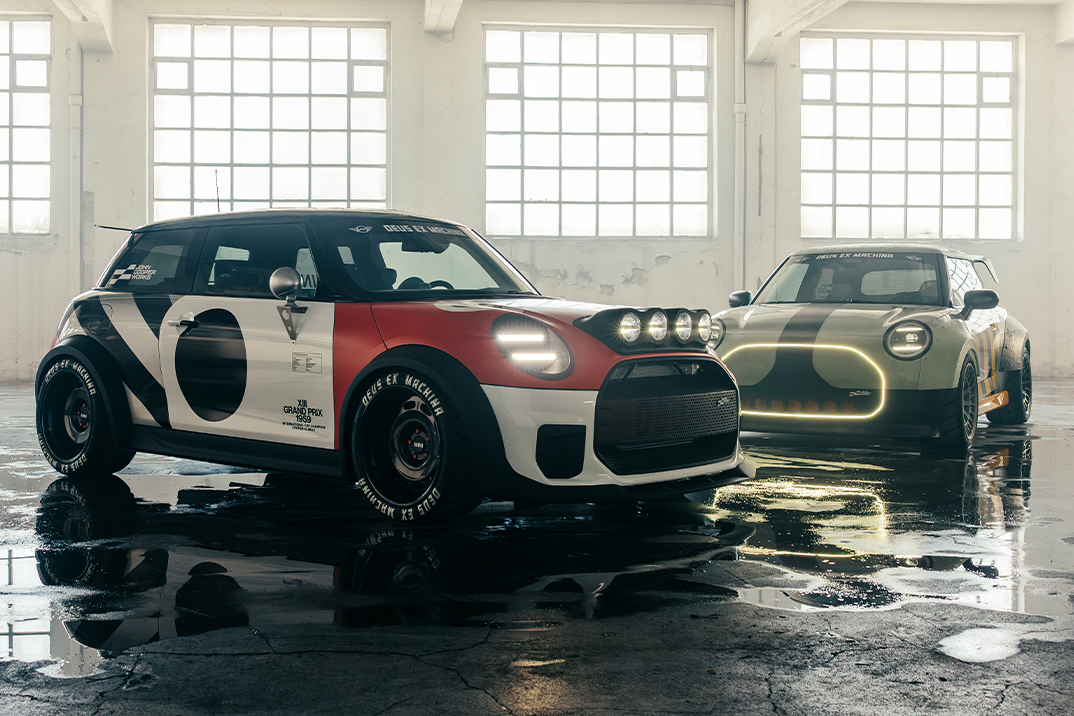Two sides of the same coin, these vehicles showcase the best of both all-electric and combustion worlds.
Why it matters
- The collaboration between Mini and Deus Ex Machina highlights a significant trend toward versatility in vehicle design, merging traditional combustion engines with modern electric technology.
- This innovative approach caters to a broader audience, appealing to both environmentally conscious consumers and automobile enthusiasts.
- The concepts underline the automotive industry's shift towards sustainability while retaining the performance and excitement associated with combustion engines.
In a groundbreaking display of automotive engineering, Mini has partnered with the Australian motorcycle and lifestyle brand Deus Ex Machina to create two stunning concept vehicles that harmoniously blend all-electric and combustion technologies. This collaboration not only signifies a bold step forward in vehicle innovation but also illustrates the potential for versatility in the automotive market as it navigates the transition to more sustainable energy solutions.
The two concept vehicles, each showcasing a unique design philosophy, represent a fascinating exploration of what the future of motoring might hold. Mini's reputation for compact and stylish vehicles is combined with Deus Ex Machina's flair for custom, performance-driven designs. The result is a pair of models that stand out not just for their aesthetics but also for their engineering prowess.
The first vehicle, a striking reinterpretation of the classic Mini John Cooper Works, boasts an electrified powertrain that promises a thrilling driving experience while minimizing environmental impact. With a design that pays homage to Mini's racing heritage, this concept demonstrates that electric vehicles can indeed deliver the excitement traditionally associated with their combustion counterparts. The vehicle's sleek lines and dynamic stance are complemented by cutting-edge technology, ensuring that it remains at the forefront of the automotive landscape.
In contrast, the second model embraces the classic combustion engine, but with a modern twist. It features a powerful and efficient engine that reflects the brand's commitment to performance while also incorporating eco-friendly elements. This vehicle appeals to purists who appreciate the visceral thrill of a traditional engine, yet it also hints at a future where combustion engines evolve to coexist alongside electric counterparts. The design aesthetic is rugged and adventurous, appealing to those who see their vehicles as extensions of their lifestyle.
Both vehicles are not merely concepts; they symbolize a movement toward a more integrated approach to automotive engineering. By marrying electric and combustion technologies, Mini and Deus Ex Machina are tapping into a growing market of consumers looking for versatility and performance in their vehicles. This duality allows drivers to choose the driving experience that best suits their needs, whether it's the immediate torque and silent operation of an electric vehicle or the raw power and character of a combustion engine.
The collaboration also reflects a broader industry trend as manufacturers respond to increasing consumer demand for sustainable practices without sacrificing performance or enjoyment. As regulations around emissions tighten and consumers become more environmentally conscious, the automotive industry is under pressure to innovate. Projects like this one from Mini and Deus Ex Machina are essential in demonstrating that it is possible to create vehicles that are both thrilling and responsible.
Moreover, this partnership may pave the way for further collaborations between automotive brands and lifestyle companies. By blending their expertise, these brands can explore new markets and demographic segments, appealing to younger consumers who value sustainability, style, and performance equally. As the automotive landscape continues to evolve, such partnerships may become more common, leading to a richer variety of vehicles that cater to diverse preferences.
In conclusion, Mini and Deus Ex Machina's joint venture is not just an exciting development for fans of the two brands; it represents a pivotal moment in the automotive industry. By bridging the gap between electric and combustion technologies, they are not only redefining what a vehicle can be but also challenging preconceived notions about performance and sustainability. As consumers increasingly prioritize eco-friendly options, innovations like these will play a crucial role in shaping the future of mobility.











